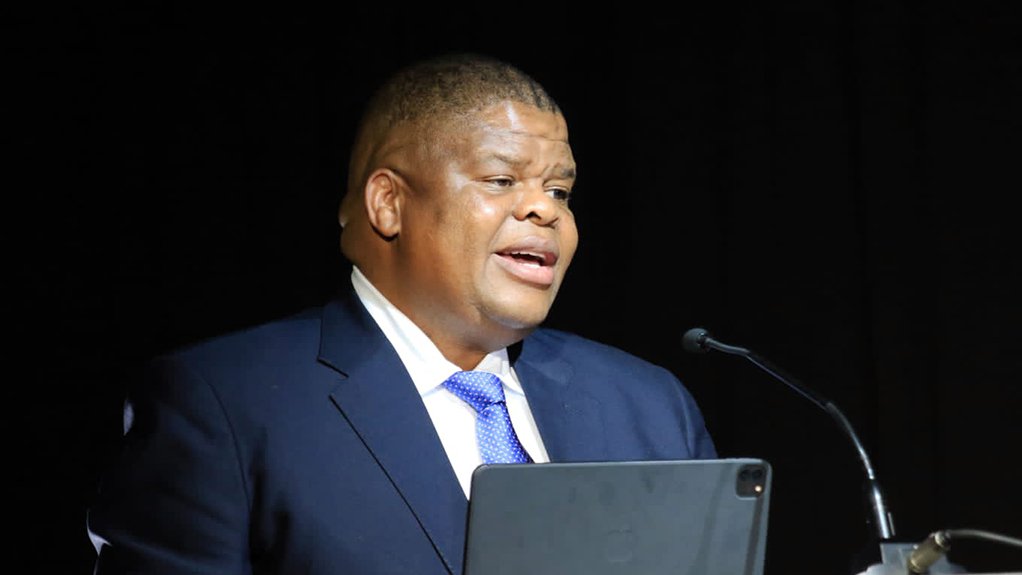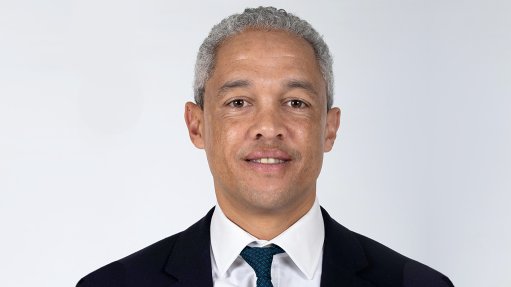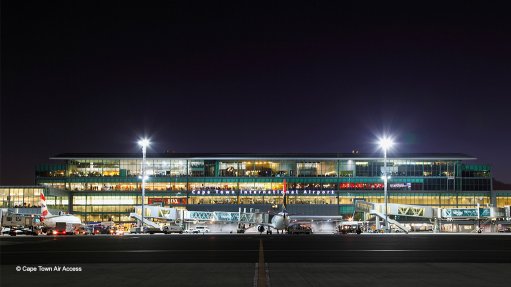South Africa’s water availability on the edge
Various factors can lead to a rapid decline in South Africa’s water availability, according to Water and Sanitation Deputy Minister David Mahlobo, who reiterated the need to diversify the water resource mix to ensure water security.
Economic growth, population growth, urbanisation, inefficient water use, degradation of wetlands and the impact of climate change, as well as the financial challenges faced by municipalities, which owe R19-billion to water boards, are among the ongoing risks to the sustainability of the water sector.
“South Africa will not run water dry by 2030 but there will be challenges if there is no change in the way of doing things,” he told delegates at an inaugural Built Environment Indaba event, hosted by the Black Business Council in the Built Environment, last week.
One of the main issues plaguing the water sector is the poor performance and adherence to standard operating procedures for drinking water treatment and wastewater treatment.
“Infrastructure is often left in poor condition owing to a lack of maintenance, with municipalities failing to hire qualified personnel to oversee these essential processes. Additionally, weak billing and revenue collection, as well as inadequate budget prioritisation for maintenance and operations by municipal councils, further exacerbate the challenges faced by the sector.”
“In terms of water security, the supply of raw water is currently in balance with the existing demand at a national level. Additionally, the government has recognised the localised deficit, acknowledging that 98% of the available water is already allocated in our land.”
However, to ensure future water security, diversifying the water resource mix through sustainable use of groundwater, desalination of seawater, water reuse from treated wastewater systems and water reclamation, is critical.
In addition to the essential supply-side measures, there is a need for water conservation and demand management and asset management, including, for example, pressure-reducing valves.
Mahlobo pointed out that the Department of Water and Sanitation (DWS) and water boards were supporting many municipalities to implement improved, agreed-upon plans, while the DWS, the Department of Cooperative Governance and Traditional Affairs, the Municipal Infrastructure Support Agency, the Department of Human Settlements and the National Treasury have allocated more than R20-billion a year in water and sanitation infrastructure grants to municipalities, while providing technical and engineering support and assistance, capacity building and training, and financial management advice and support.
He further highlighted several key water sector projects currently in implementation to address water shortages and improve access to water in various regions across the country.
“The R40-billion Phase 2 of the Lesotho Highlands Water Project (LHWP) is one of the major projects that is currently in progress. This project is aimed at delivering about 470-million m3/y in addition to the 780-million m3/y which the Integrated Vaal River System currently receives from LHWP Phase 1, and will increase the availability of raw water for Gauteng and surrounding areas, which have been experiencing water shortages.”
Other projects include the R26-billion uMkhomazi water project in KwaZulu-Natal and the R4-billion Phase 2A of the Mokolo Crocodile water augmentation project, in the North West and Limpopo, as well as the R12-billion Olifants River water resource development project in Limpopo; the R10-billion Vaal Gamagara project in the Northern Cape; the R8-billion Mzimvubu water project in the Eastern Cape; the R500-million Groot Letaba water augmentation project in Limpopo; the R1.2-billion Berg River Voelvlei augmentation scheme in the Western Cape; and the R4-billion raising of Clanwilliam dam in the Western Cape.
“All of these projects are aimed at diversifying the water resource mix to ensure water security for South Africa,” Mahlobo concluded.
Article Enquiry
Email Article
Save Article
Feedback
To advertise email advertising@creamermedia.co.za or click here
Press Office
Announcements
What's On
Subscribe to improve your user experience...
Option 1 (equivalent of R125 a month):
Receive a weekly copy of Creamer Media's Engineering News & Mining Weekly magazine
(print copy for those in South Africa and e-magazine for those outside of South Africa)
Receive daily email newsletters
Access to full search results
Access archive of magazine back copies
Access to Projects in Progress
Access to ONE Research Report of your choice in PDF format
Option 2 (equivalent of R375 a month):
All benefits from Option 1
PLUS
Access to Creamer Media's Research Channel Africa for ALL Research Reports, in PDF format, on various industrial and mining sectors
including Electricity; Water; Energy Transition; Hydrogen; Roads, Rail and Ports; Coal; Gold; Platinum; Battery Metals; etc.
Already a subscriber?
Forgotten your password?
Receive weekly copy of Creamer Media's Engineering News & Mining Weekly magazine (print copy for those in South Africa and e-magazine for those outside of South Africa)
➕
Recieve daily email newsletters
➕
Access to full search results
➕
Access archive of magazine back copies
➕
Access to Projects in Progress
➕
Access to ONE Research Report of your choice in PDF format
RESEARCH CHANNEL AFRICA
R4500 (equivalent of R375 a month)
SUBSCRIBEAll benefits from Option 1
➕
Access to Creamer Media's Research Channel Africa for ALL Research Reports on various industrial and mining sectors, in PDF format, including on:
Electricity
➕
Water
➕
Energy Transition
➕
Hydrogen
➕
Roads, Rail and Ports
➕
Coal
➕
Gold
➕
Platinum
➕
Battery Metals
➕
etc.
Receive all benefits from Option 1 or Option 2 delivered to numerous people at your company
➕
Multiple User names and Passwords for simultaneous log-ins
➕
Intranet integration access to all in your organisation




















